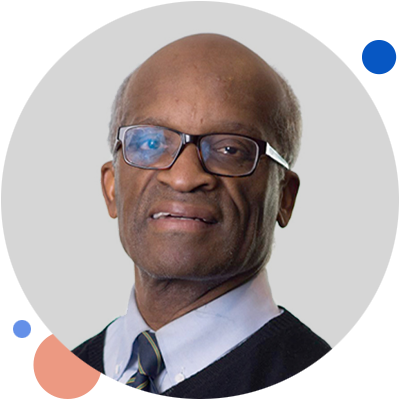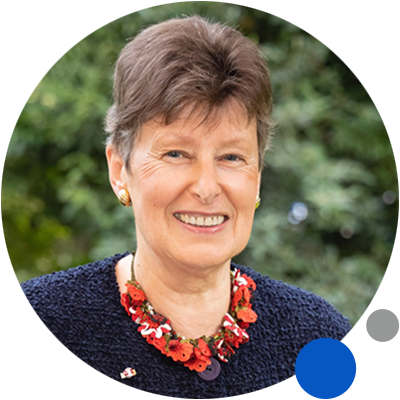Partnership on AI Welcomes Prominent New Directors With Expertise in Public Policy and Technology
Partnership on AI (PAI) is proud to welcome three new directors to the Board: Ben Coppin, Director at DeepMind in the UK, William Covington, Director of Technology, Law & Public Policy Clinic and Assistant Dean of Diversity, Equity, and Inclusion at University of Washington, and Angela Kane, Vice President at International Institute of Peace in Vienna.
“We’re very excited to welcome these new directors to the Partnership on AI Board,” said Eric Horvitz, Chief Scientific Officer at Microsoft and Board Chair at Partnership on AI. “With backgrounds in industry, academia, and international multilateral organizations, Ben, William, and Angela each bring deep expertise, rich experiences, and a unique perspective to PAI’s board. I’m looking forward to their insights and guidance on our mission, goals, and efforts.”

Ben Coppin
DeepMind

William Covington
University of Washington

Angela Kane
International Institute of Peace
Along with the three new Directors announced in August, Coppin, Covington, and Kane will officially begin their tenure on the PAI Board in October 2022; each bringing their own distinct and valuable expertise to the PAI Board:
- With a focus on the real-world applications of machine learning, Coppin brings insight on how to address social impact and ethics of AI.
- A legal expert with decades of experience in technology-driven fields, Covington has rich expertise in developing public policy related to new technologies.
- Currently based in Vienna, with a long and distinguished career at the United Nations, Kane brings global experience and insight into advancing shared goals within international multilateral bodies.
“I believe that AI has the potential to be the most impactful technology for humanity of the past millennium. As with all powerful technologies, however, there is necessary work to be done to ensure that its impact is positive, that its benefits are evenly distributed and that we understand the potential and actual harms that might arise from its application in the real world,” said Ben Coppin, Director at DeepMind. “I further believe that this can not be done by any one organization alone, but must be tackled by the Artificial Intelligence community as a whole. Partnership on AI is uniquely positioned to bring that community together and to facilitate, inspire and enable the vital work that is needed. I am delighted to have the opportunity to join Partnership on AI’s board and I am committed to supporting their mission.”
“The development and deployment of AI and machine learning are occurring at ‘warp speed’,” said William Covington, Director of Technology, Law & Public Policy Clinic and Associate Dean of Diversity, Equity, and Inclusion at the University of Washington. “Where is the ‘conscience’ needed to insure this technology is developed and employed in a manner that is fair, equitable, and of maximum benefit to all? Typically policy chases technology, the public interest must be more than an afterthought. I am excited to be part of PAI’s efforts to promote innovation, equity and fairness.”
“Artificial Intelligence is reshaping society, yet our societies are not prepared for AI politically, legally or ethically. It is a tool we use daily to further our goals, yet the impact of new technologies is often hard to foresee,” said Angela Kane, Vice President at the International Institute for Peace. “Challenges arise from the rapid rate of tech development, as well as the breadth and pace of new applications. That is why Partnership on AI—by convening leaders from industry, civil society and academia—is such a critical forum to ensure that AI systems have a positive societal impact and will not contribute to new forms of inequity. I am delighted to join PAI’s Board of Directors and support PAI’s mission in this important endeavor.”
About the New Board Members
Ben Coppin is a Director at DeepMind where he leads a number of efforts focused on the social impact and ethics of artificial intelligence. Since joining DeepMind in 2012 his work has focused on the real-world applications of machine learning with a particular emphasis on the ethical and societal implications of the technology. He has a first class degree in computer science from Cambridge University and since graduating has worked in and around artificial intelligence, particularly in startups (including one or two of his own). His university textbook, Artificial Intelligence Illuminated was published in the US in 2004.
William Covington is a Senior Lecturer and directs the Technology, Law and Public Policy Clinic (Tech-Law Clinic) at the University of Washington School of Law. A graduate of New York University (1972) and the University of Michigan School of Law (1977), Covington has spent over twenty-five years working in technology-driven fields. He has served as regulatory counsel for Group W Cable and later in a similar capacity with McCaw Cellular Communications. Covington led lobbying efforts, wrote or assisted in the writing of over twenty land use laws, served on numerous commissions and frequently appeared before federal, state and local regulatory bodies where he worked to create regulatory structures which balance public sector-private sector interests.
The Tech-Law Clinic provides students the opportunity for in-depth study of an area where technology and public policy converge. In the last five years Tech-Law clinicians have: drafted an Executive Order establishing Washington State’s Office of Privacy and Data Security; composed several bills regulating the testing of connected and autonomous vehicles; assisted the City of Bellevue and the University of Washington in assembling regulations governing Unmanned Aerial Vehicles (drones”); and assisted Washington State’s Chief Privacy Officer in crafting legislative proposals on the use of biometric data.
Covington has co-chaired UW Law’s Dean’s Advisory Committee on Diversity, Equity and Inclusion and was a founding board member of the Washington State Bar Association’s Limited License Legal Technician program. He received the Dean’s Medal for Service in 2013.
Angela Kane is Vice President, International Institute for Peace (Vienna) and Senior Fellow at the Vienna Center for Disarmament and Non-Proliferation. She is a member of the European Leadership Network, Comprehensive Test-Ban Treaty Organization, Deep Cuts Commission and serves on academic and NGO Boards in Europe, United States and Asia. She participated as a reserve member in the High-Level Expert Group on Artificial Intelligence of the European Commission.
She had a long and distinguished career at the United Nations. As High Representative for Disarmament Affairs, she led the ground-breaking investigation of alleged chemical weapons use in Syria in 2013. She served as Under-Secretary-General for Management for four years, with responsibility for the UN’s global administration. She also served as Assistant Secretary-General for Political Affairs; her field experience includes Deputy Special Representative of the Secretary-General for the UN Mission in Ethiopia and Eritrea, a special assignment to the Democratic Republic of the Congo and multi-year postings in Indonesia and Thailand.
Angela studied at the University of München and holds degrees from Bryn Mawr College and the Johns Hopkins School of Advanced International Studies. She received an Honorary Doctorate from the Middlebury Institute of International Studies in Monterey, California.
These three new appointments complete this year’s nominations for new Board directors. A call for new directors in 2023 will begin later this year.

